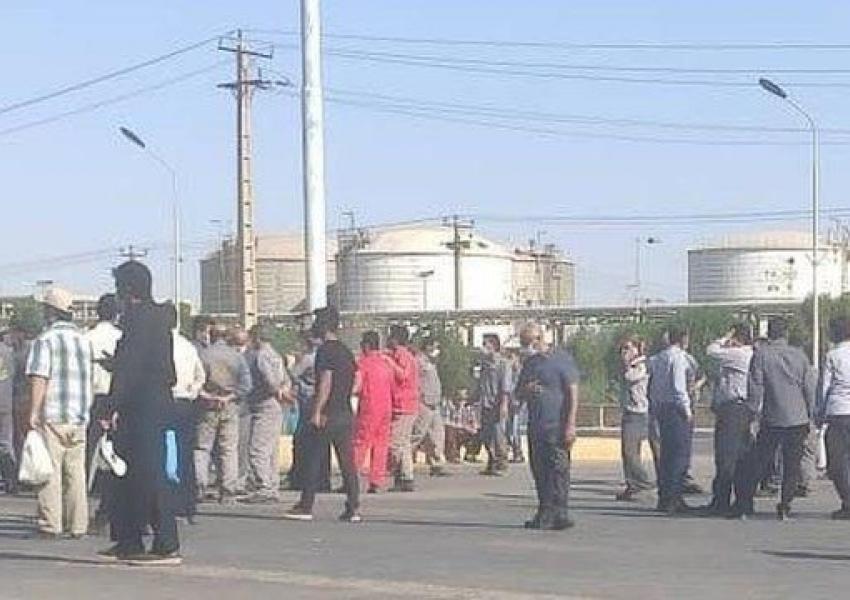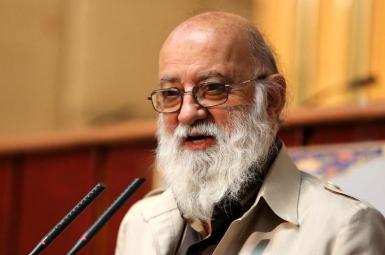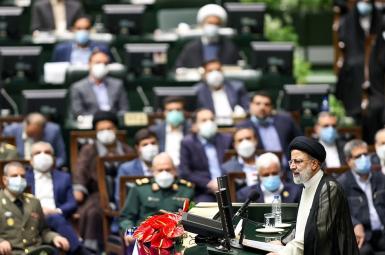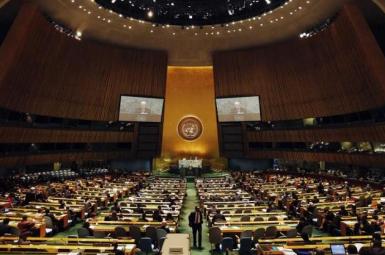
Rouhani Claims Iran Oil Workers' Strike Not Curbing Production Or Exports
President Hassan Rouhani told the cabinet Wednesday that the strike of contract and temporary workers in the oil and petrochemical sectors had not affected and would not affect production, distribution and exports. This, he said, was despite the claims of “anti-Iranian satellite TV propaganda machines.”
Rouhani said he would instruct the minister of labor to address the issues raised by the workers to resolve them along with contractors, given the strikers were not directly employed by the oil ministry. The industrial action of workers engaged on term-contracts by contractors and subcontractors of the National Iranian Oil Company (NIOC) and similar state entities began June 19 at several sites in the south and has quickly spread in oil-producing southern and south-western provinces as well to refineries in Tehran and Esfahan.
There are over 150,000 workers without regular employment contracts in the energy and petrochemical industries − mostly technicians and tradesmen such as scaffolders, fitters, welders, and electricians − who lack the benefits of regular government employees in the oil sector.
Contract workers' salaries are much lower than regular workers in the employment of the government. Due to the hardships of working under extreme conditions at oil rigs, refineries, and petrochemical plants in the south, often hundreds of miles away from their families, government-employed workers get better paid than even the rest of government employees and their salaries are around 300m rials per month (about $1,200) on average.
The striking workers want monthly wages increased from around 72 million rials ($300) to 120 million rials ($500), and better benefits such as ten, instead of five days off, after each 20-day working cycle, so allowing them regular trips home.
The economic impact of the strike, now in its 12th day, is unclear. Petrochemical exports have held up far better than oil exports under draconian United States sanctions imposed in 2018 and now account for around a third of Iran’s non-oil exports and are a major foreign-currency earner.
Government-employed oil industry workers have also in recent weeks been demanding higher pay and threatened industrial action. The budget approved by parliament for 2021-2 does not allow pay for any government employee to exceed the minimum wage by 15 times, a cap that has prevented government-employed oil workers from receiving the 25 percent increase in the salaries of other government employees in the current fiscal year.
Rouhani said Wednesday that the government would try to resolve this issue. The Parliament's Energy Committee has promised to amend the relevant section of the budget law to allow the oil workers to receive the 25 percent increase.









